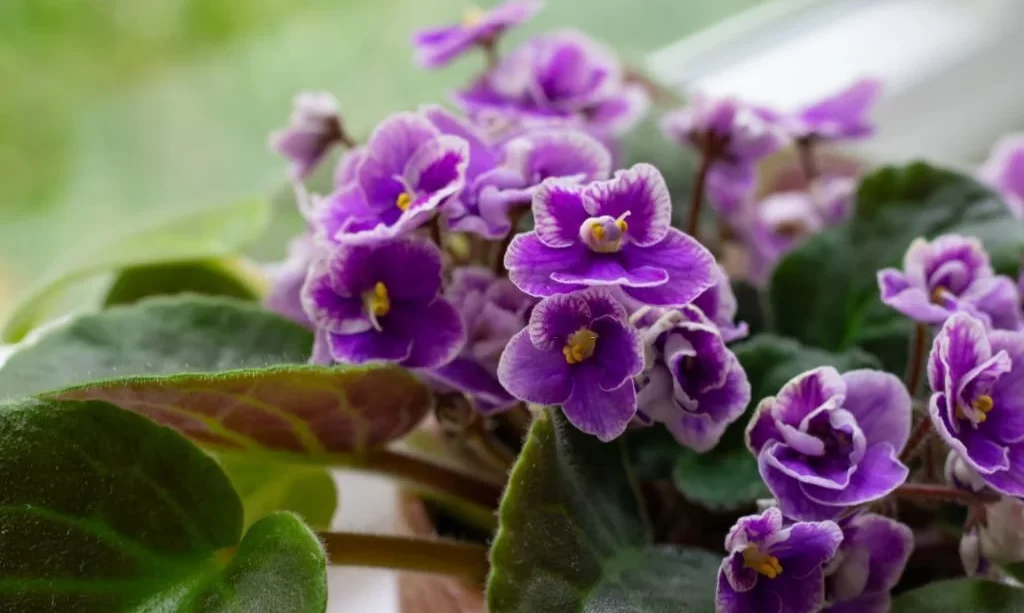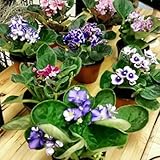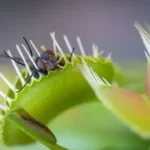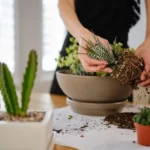African violets, with their charming, velvety petals in an array of colors, have earned a special place in the hearts of plant enthusiasts around the world. These beloved houseplants, known for their elegant beauty and relatively easy care, bring a touch of nature’s grace to our indoor spaces. Yet, as with any living organism, questions about their lifespan often arise.
In this article, we embark on a journey to explore the lifespan of African violets, providing insights into what one can anticipate when cultivating these delightful plants. As we delve into the world of African violets, we’ll uncover the factors that influence their longevity and discuss the general expectations surrounding their lifespan. Whether you’re a seasoned African violet enthusiast or just beginning your journey with these charming houseplants, understanding their lifespan is a valuable aspect of caring for them. So, let’s start by unraveling the mysteries of how long these botanical gems can thrive.
Lifespan Expectations: What to Anticipate
African violets, known scientifically as Saintpaulia, are cherished for their captivating blooms and compact, bushy growth habit. However, like all living organisms, African violets have a natural lifespan that varies from plant to plant. In this section, we delve into what one can generally expect when it comes to the lifespan of African violets:
- Typical Lifespan: We discuss the average lifespan of African violets, which can range from several years to a quarter of a century or more, depending on several factors.
- Variability: We emphasize that the lifespan of African violets is not fixed and can vary significantly based on environmental conditions, care practices, and individual genetic factors.
- Care Impact: We highlight how proper care, including light, water, and nutrition, can have a substantial impact on the longevity of African violets.
- Emotional Connection: We touch upon the emotional bond that often forms between plant owners and their African violets, making their lifespan a matter of sentimental significance.
By understanding what to anticipate in terms of the lifespan of African violets, you’ll be better equipped to provide the care and attention needed to help these houseplants thrive for as long as possible.
Factors Influencing African Violet Lifespan
The lifespan of African violets is influenced by a variety of factors, some of which can be controlled or optimized by the caregiver. In this section, we explore these key factors that play a role in determining how long an African violet can live:
- Light: Adequate and appropriate lighting is essential for the health and longevity of African violets. We explain how insufficient or excessive light can impact their growth and overall lifespan.
- Watering: We discuss the importance of proper watering techniques, including the avoidance of overwatering and underwatering. Maintaining consistent moisture levels is crucial for their well-being.
- Temperature and Humidity: African violets thrive in stable temperature and humidity conditions. We explain how extreme temperature fluctuations or excessively dry indoor environments can affect their lifespan.
- Soil and Potting: The choice of soil and potting practices can significantly influence the health of African violets. We touch upon the importance of well-draining soil and appropriate pot sizes.
- Fertilization: Proper fertilization is vital for providing essential nutrients to African violets. We provide guidance on when and how to fertilize to promote a longer life.
- Pest and Disease Management: African violets can be susceptible to pests and diseases. We discuss the impact of these issues on their lifespan and offer tips for prevention and treatment.
- ORGANIC PLANT FOOD: This liquid fertilizer for Violets provides organic nutrients to ensure superior results and is safe to use around kids and pets.
- EASY: Simply add ½ cap of Violet! plant food liquid per quart of water and water your plants. Thoroughly drench the soil of the plant. For best results use every 2-4 weeks.
- CONTAINS: Essential plant nutrients to help Violets thrive. Liquid plant food is a vital part of plant care. See label for all ingredients.
- FAST RESULTS: Espoma Organic fertilizer for Violets will help you grow larger plants with more vibrant blooms.
- MADE IN THE USA: Product of the Espoma Company. The leader in natural organics since 1929.
Signs of Aging: Recognizing an Aging African Violet
As African violets age, they may exhibit various signs that indicate they are entering their later years. In this section, we help gardeners recognize these signs, differentiating between normal aging and potential problems that require attention:
- Reduced Flowering: We explain how it’s natural for African violets to produce fewer flowers as they age, and why this occurs.
- Leggy Growth: We discuss how aging African violets may develop leggy or elongated stems and explain the reasons behind this phenomenon.
- Declining Overall Health: We explore how an aging African violet may show signs of declining health, such as yellowing or fading leaves, and provide insights into what caregivers can do to support their plant during this stage.
By understanding these factors and recognizing the signs of aging, you’ll be better equipped to provide the appropriate care and adjustments needed to help your African violet live a long and healthy life.
Reviving Aging African Violets: Tips for Prolonging Their Life
Reviving aging African violets and extending their lifespan is a rewarding challenge for dedicated plant enthusiasts. In this section, we provide practical tips and techniques for breathing new life into your aging African violets:
- Repotting: We discuss the benefits of repotting older African violets into fresh, well-draining soil to rejuvenate their root systems and overall health.
- Rejuvenation through Leaf Cuttings: We explain how propagating African violets through leaf cuttings can help create new, healthier plants, revitalizing your collection.
- Pruning Techniques: We offer guidance on pruning leggy growth and spent flowers to encourage bushier, more vigorous growth.
- Environmental Adjustments: We discuss how making appropriate changes to light, humidity, and temperature conditions can provide a boost to aging African violets.
- Fertilization Strategies: We provide recommendations for adjusting your fertilization routine to accommodate the changing needs of older plants.
- Continued Care: We emphasize the importance of maintaining consistent care practices and continued attention to aging African violets.
- The blend consists of Sphagnum Peat Moss, perlite, volcanic pumice and earthworm castings with dolomite lime added as a soil pH adjuster
- This product is made in United States
- Package Weight: 1.724 kilograms
- Package Dimensions: 8.89 L x 37.592 H x 24.13 W (centimeters)
Conclusion
As we conclude our exploration of the lifespan of African violets, it’s essential to remember that these charming houseplants can live long, fulfilling lives with the right care and attention. While they may exhibit signs of aging over time, this is a natural part of their life cycle, and it’s possible to rejuvenate and extend their vitality.
African violets have a unique way of capturing our hearts with their delicate blooms and lush foliage. They become more than just houseplants; they become cherished companions in our homes. By understanding the factors that influence their lifespan and recognizing the signs of aging, we can provide the care and support needed to ensure they thrive for years to come.
Whether you’re a seasoned African violet enthusiast or a newcomer to the world of indoor gardening, these lovely plants offer endless opportunities for joy and connection with nature. With patience, knowledge, and a genuine love for your African violets, you can look forward to a long and fulfilling journey with these botanical treasures. May your African violets continue to grace your living spaces with their beauty and charm for many seasons ahead.







